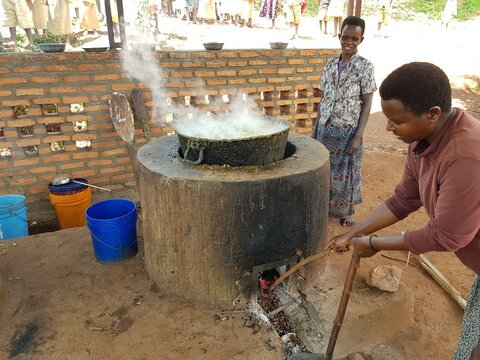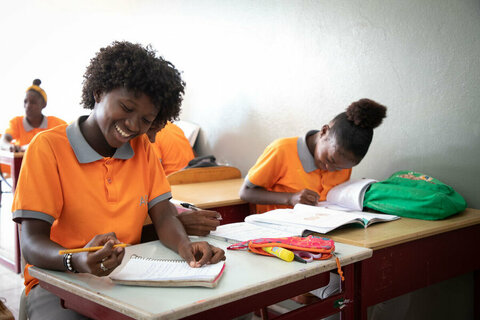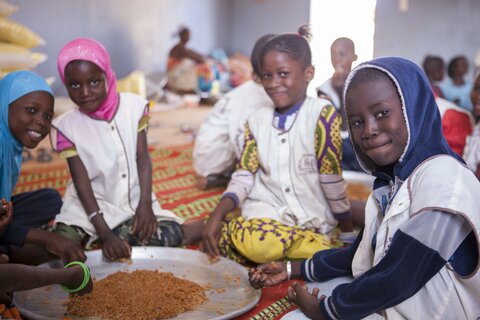Senegal: Cow dung proves ‘green gold’ for the women of Kolda

Story by Oumar Lo
The figures are shocking: 92 percent of our world is exposed to polluted air, causing an estimated 7 million premature deaths every year.
The bottom line is that air pollution is an environmental risk to human health and an avoidable cause of death and disease worldwide. Not just that, it has detrimental effects on our climate, biodiversity and ecosystems, and quality of life in general.
Following an increasing interest in clean air among the international community, the UN General Assembly designated 7 September as the International Day of Clean Air for blue skies. To mark the occasion, we take a look at Senegal's initiative to reduce air pollution and improve productivity.

In the village of Talto Diéga de Kolda, in the south of Senegal, women walk tens of kilometres each day in search of firewood to cook with. These women work together in community teams known as Economic Interest Groups, to earn additional income.
The World Food Programme (WFP) has eased the burden on women in the communities in the Kolda area by supporting them with the installation of biodigesters, as part of the Rural Resilience Initiative. The initiative, also known as R4, assists vulnerable rural families in enhancing their food and income security in the face of increasing climate risks.

The rainy Kolda region is rich in pastureland, where cattle-grazing leaves a plentiful supply of dung. This natural resource is now being transformed into a biofuel and organic fertilizer, through six biodigesters financed by WFP.
With a capacity of 18 cubic metres and built-in cereal and vegetable-processing units, these devices are managed by the women's groups. A number have also been installed in schools in the Kolda region. Each biodigester produces 4.5 cubic metres of gas and 90 tons of fertilizer per year.
Cow dung is collected in the fields, then mixed with water in a large, underground tank. The chemical reaction, called anaerobic digestion, produces biogas, which is conveyed via a pipe to a kitchen. The residues are transformed into an organic fertilizer, which is used in the rice fields and market gardens to nourish crops.

"The benefits of the biodigester are multiple," says Ramatoulaye, a member of the women's group. "Every time I hear about the biodigester, I am happy. Our production now is much better thanks to the fertilizer from the biodigester. Where we found ourselves with 100 bales of rice, we now manage to have between 150 and 200."
Another benefit of biodigesters is the preservation of the environment, by reducing the use of firewood and allowing forests to regenerate.
What's cooking? A healthier future for all

Determined to work for the development of their community, the women beneficiaries of the R4 initiative use the biofuel to cook local ingredients to produce bissap, a popular drink, and broth. Thanks to loans called ‘warrantage', they can afford the raw materials and sell the products in markets.

"The income from sales gives us financial independence and allows us to feed our families, and to buy shoes and clothes for our children — but above all to ensure their tuition fees," says Dieynaba, a member of the Talto Diéga group.
WFP has also installed biodigesters to be used by 15 school canteens, for the first phase of a "model canteens" programme. The biodigesters will transform cow dung to supply the school kitchens with an environmentally friendly fuel, to cook healthy meals for children.


